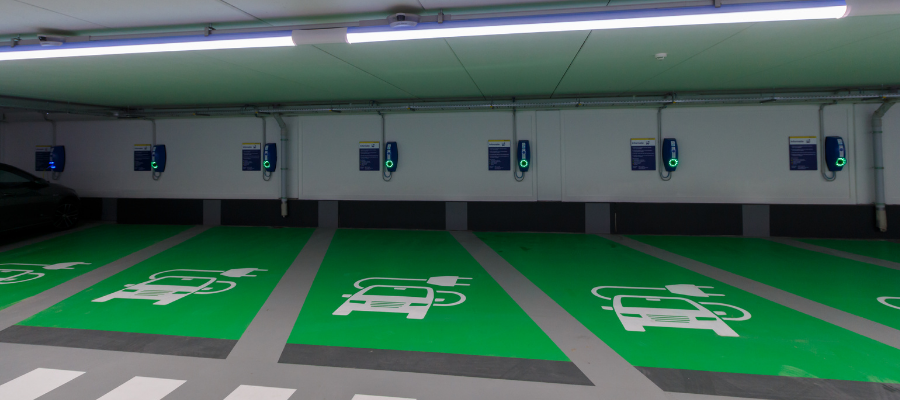🕒 Article read time: 2 minutes
A smarter way to fuel our fleets

A clear focus for reducing carbon emissions and driving forward for a greener future has pushed its way up the logistics industry’s agenda in recent years.
And government announcements made early in 2023, such as the Electric Vehicle Smart Charging Plan and the independent Skidmore net-zero review, reveal that decarbonisation remains a key priority for government.
MISSION ZERO
On 13 January 2023, Mission Zero: Independent Review of Net Zero was published by MP Chris Skidmore, former Energy Minister but now chair as appointed by BEIS Secretary of State. This report was published as a conclusion to the initial review commissioned by former Prime Minister Liz Truss on 26 September 2022.
Commenting on the report, Logistics UK’s Senior Policy Manager, Denise Beedell, said: “Logistics UK welcomes the recognition of the opportunities and challenges for the logistics sector to decarbonise within this report.”
The review recommends how the UK can achieve its net zero commitments by demonstrating how to deliver and implement most effectively and efficiently a plan for our future energy transition. In addition, it considers how decarbonisation can be affordable following the war in the Ukraine, and the cost-of-living crisis which saw households and business struggle to navigate through high energy prices and broader inflationary pressures.
“Encouragingly, the review recommends that government provides clarity to businesses surrounding UK policy and funding and states this should not rapidly change without needing to,” Beedell said.
CHARGING AHEAD
In January, government announced its new plan for electric vehicle (EV) charging, called The Electric Vehicle Smart Charging Action Plan, which, in partnership with Ofgem, has the potential to save consumers up to £1,000 a year.
Beedell said that while Logistics UK is very pleased to see government and Ofgem working together to remove barriers for innovative charging technology, the business group is urging government to ensure the needs of commercial vans, as well as larger electric HGVs, are accommodated within new infrastructure.
“If UK logistics businesses are to achieve net zero by the 2030 deadline, it is vital that the country’s charging infrastructure can provide the necessary accessibility and capacity that the UK’s fleet will require,” she said.
NEW ENERGY SCHEME A BLOW FOR INDUSTRY
Government also announced its new Energy Bills Discount Scheme (EBDS), which is a huge a blow for industry as it diverts significant funding away from the logistics sector that could otherwise be invested in greener technologies to provide a lower carbon future.
“The current energy bill scheme, which caps the unit cost of gas and electricity for all businesses, provides much-needed certainty for our members, particularly SMEs who make up 99% of the logistics sector,” Beedell said, “However, the significantly lower discounts to be applied to eligible businesses within the new scheme from 1 April 2023 will be detrimental to further growth and investment for the future.”
Logistics UK is urging government to use its Spring Budget to deliver a package of support that ensures its members can keep operations moving and UK businesses trading, while continuing to invest in ways to reduce emissions.
DECARBONISATION MUST REMAIN A KEY PRIORITY
Overall, Beedell believes that the focus that has already been placed on decarbonisation is positive and builds on the progress made in 2022.
“However, it is vital that it remains a priority throughout 2023 and beyond,” she cautions, “and Logistics UK looks forward to working with government, members and senior stakeholders to ensure that collaboratively, we work towards a greener future.”
*www.logistics.org.uk/environment
Published On: 02/02/2023 16:00:43

Comments Section
If you are a Logistics UK member login to add comments.